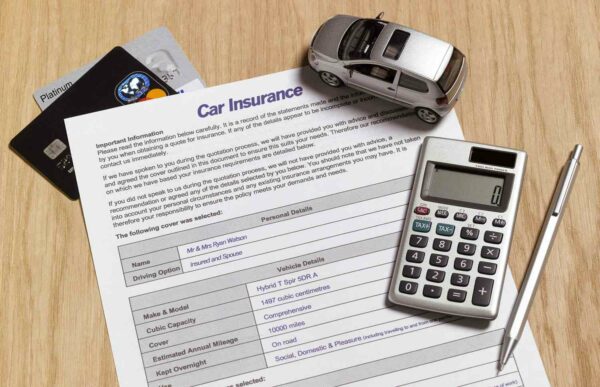Significant tax deductions for freelancer business: A complete guide
Are you a freelancer? If yes, pay attention to these tax deductions that could help you to save money. You are responsible for keeping track of your earnings and deductions. Particularly around tax season, this can be challenging. As a freelancer, you have high-income skills. You can earn money without having taxes withheld. The responsibility for calculating and paying your taxes lies with you. You might end up with a sizable tax bill if you underpay throughout the year. However, tax deductions available to freelancers can reduce your tax burden. In this guide, we will look over the most common ones.
How do freelancer tax deductions work? A complete guide:
If you are a freelancer, you are self-employed and have your business. The IRS is aware that operating a business can be expensive. As a result, you can deduct some of your expenses as business expenses. Business expenses can be ordinary or necessary.
- An ordinary expense is accepted widely in the industry.
- A necessary cost is advantageous and appropriate for a trade or business.
These deductions are crucial to a freelancer’s business. It helps to reduce your net profit and the amount of taxes you owe.
When can you claim an expense as a deduction?
You can claim an expense as a deduction when there are the following conditions:
- The cost is related to the ongoing freelance work.
- It was spent entirely and solely on your work.
- It occurs during the tax year.
- It is neither a capital nor a personal expenditure of the freelancer.
- It is not applicable for committing an offense or violating a law.
How to claim your tax deductions? Important Tax Deductions for freelancer business:
Most self-employed individuals are sole proprietors who manage everything independently, whether paying for a course or a pay stub generator. During tax season, they report their self-employment income and most deductions on Schedule C. However, some of the tax exemptions are not included in Schedule C. They are included on other parts of your tax return. For example, self-employment tax deductions necessitate the completion of a different schedule. Here are ten typical tax deductions for independent contractors.
| Business startup cost deduction | Work supplies | Travel & Hotel |
| Health insurance deduction | Advertising & Marketing | Education Expenses |
| Home office | Retirement contributions | Vehicle expenses |
| Hardware & Software |
Business startup cost deduction:
You’ll incur startup costs before your freelance business is up and running. It can be filing for permits and business licenses or creating a website. The IRS allows you to deduct up to $5,000 in startup costs in the first year of any business. The amount will be reduced if these expenses exceed $50,000. However, this amount won’t typically be exceeded by small-business owners.
Work supplies:
Supplies and equipment, such as laptop computers, printers, books, and other items, may also be tax deductible. You could either deduct the entire cost of the equipment or depreciate a larger asset. For example, a computer for which you can claim the costs over time. Office supplies can quickly add up, especially if you’re regularly printing reports and presentations for clients. Any office supplies purchased and used during a tax year are deductible.
Travel and hotel:
You can deduct travel expenses if you visit clients or attend trade shows. Transportation and lodging costs can be a part of business travel expenses. The IRS permits a 50% meal expense deduction. All travel expenses, including bus and train tickets, rental car fees, and plane tickets, should be considered deductible. You can avoid the cost that is linked with sightseeing and leisure travel. These may result in an audit.
Health insurance deduction:
If you pay for your health insurance, it could be a sizable tax deduction. You can deduct health insurance premiums for your family, including you, your spouse, and your dependents. Your liability, malpractice, and other business insurance premiums may be deductible. Freelancers should be able to deduct up to 100% of their health insurance premiums.
Advertising and marketing:
To remain competitive, self-employed individuals must engage in marketing and advertising. The IRS allows freelancers to deduct the cost of flyers, web advertising, business cards, and print ads. You can also deduct shipping costs incurred when distributing marketing materials. In addition, you can remove any additional credit card processing fees for those transactions. However, there is some limitation to what can be claimed as a marketing expense. Promotional items, such as mugs or pens with your company name and contact information printed, are not generally deductible.
Education expenses:
Continued education is necessary if you want to stay informed about the current state of your industry. You can deduct courses and other education expenses related to your business. It covers different expenses, such as books, tuition, and more. For instance, if you are learning high-income skills to grow your freelance business, include these expenses in this category. Travel expenses for classes or attending a conference may also be deductible. However, you must be able to demonstrate that the education is assisting you in improving your skills.
Home office:
In the early stages of their businesses, many freelancers work from home. As a result, self-employed individuals can deduct the portion of their mortgage or rent that goes to a home office. You should have a specific area of your home set aside for working to include this expense in deductions. You can claim this deduction using either standard or simplified home office options.
Retirement contributions deduction:
It is critical to save for retirement. You can still save money for your golden years even though you don’t have access to an employer-sponsored retirement plan. The Simplified Employee Pension (SEP) IRA is one retirement option. The most you can contribute to a SEP IRA is the lesser of 25% of your employee compensation or $57,000. You can deduct contributions to your SEP IRA as a self-employed person. As there is a deduction limit, you should consult an accountant to determine your allowable deduction.
Vehicle expenses:
You can deduct fuel, repairs, and maintenance costs if you use a vehicle for work-related tasks. There are two types of vehicle-related deductions: standard mileage and actual expense. If you choose the standard mileage option, you can deduct the miles you’ve driven for work. However, by selecting the actual expense option, you can remove the cost of maintaining your car.
Hardware and software:
Sometimes, freelancers need certain types of software. These tools are essential for doing your job. For example, a graphic designer will require the entire Adobe suite. A writer will need advanced writing and editing software. Fortunately, you can deduct the cost if you purchase software that you will use for business purposes.
Conclusion:
There is a reason why deductions exist. To increase economic growth, the government wants to assist those who make purchases. However, it is your responsibility to keep track of all business expenses. You cannot claim these deductions if you forget about them. So make sure you’re taking advantage of every tax benefit available. Running a business can be costly, but you can still use that to your advantage as a freelancer or business owner.








